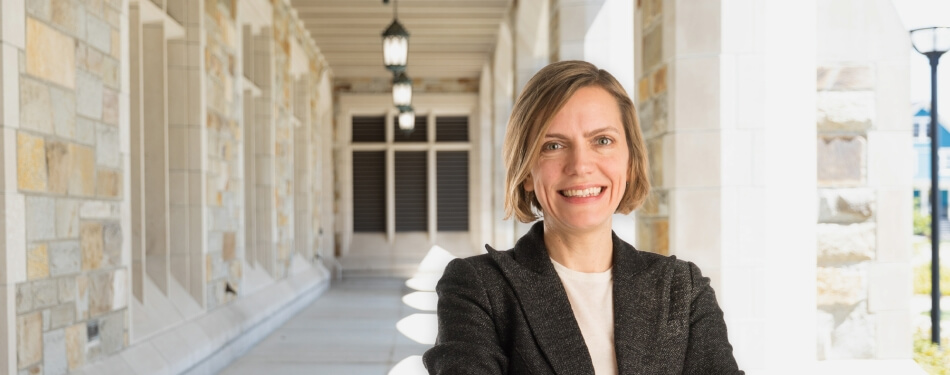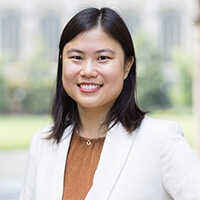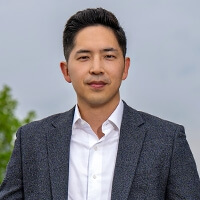Earlier this year, Professor Kristina Daugirdas added a new dimension to her expertise in international law and institutions with two overseas teaching opportunities.
Daugirdas—who also serves as associate dean for academic programming—taught a special weeklong course at the Institut des Hautes Études Internationales in Paris on United Nations peacekeeping efforts and later taught a two-week unit on US contract law at the University of Tokyo as part of a regular exchange program.
Daugirdas recently answered five questions about her experiences:
1. When you were invited to teach in Paris, how did you settle on peacekeeping as the subject?
I talked about peacekeeping because it’s the site of some of the United Nations’ greatest and most important successes—and also some of its worst failures. It is an important area of the UN’s practice. A lot of the writing that I’ve done over the last eight years or so either deals specifically with peacekeeping or has implications for peacekeeping. The course also drew on the seminar that I teach here at Michigan Law on the United Nations. Overall, this topic offered a nice way to synthesize a lot of my academic work.
2. What was the Paris classroom experience like?
This was something in between a lecture and a course. There were five two-hour sessions over the course of the week, and the first one was a freestanding lecture that set out the overarching themes. The teaching was great and really a lot of fun. The students—a mix of undergraduate and graduate students—were prepared, and they asked good questions. I wouldn’t say it was a dramatically different teaching experience than here.
3. What was your specific focus in Japan in the unit on contracts?
I focused on contractual defenses based on capacity and fairness. What are the circumstances where you can get out of contractual obligations because, for example, you are underage at the time that you enter into the contract? How about if you’re drunk? How about if you’re subject to some kind of economic coercion? I thought that that would be a good topic for a course like that because students would have intuitions based on perceptions of fairness about what the answers ought to be, and that would contribute to good discussions. The basics of the doctrine are easy to grasp, but still there are technicalities that come into play. So it’s a rich and challenging topic.
4. What was the Tokyo classroom experience like?
As I was starting my teaching, I told those students that if we were in a classroom in Ann Arbor, I would call on them for questions about the cases and not just rely on volunteers. I think it’s by far the best way for you to learn. And I said, are you up for that? We put it to a vote, and most of the students were game to be called on. That’s how we proceeded, and it went well. It was a small group of students, but they were all very engaged and happy to dive in.
5. What is the value to you as an educator of teaching overseas?
From a scholarly perspective, because I research and write mainly about international law topics, I would be doing a poor job as an international lawyer if I only ever interacted with other US-based scholars and students. I am always eager to find opportunities to engage—to ensure that my approach to international law is genuinely international by engaging outside of the US with others who are thinking and writing and learning about international law.
At the University of Tokyo, I was teaching a US-based topic. It wasn’t a comparative law course, but the setting and participants created opportunities for comparative insights to arise. I always value those opportunities to engage on topics with people who are coming at them from a different perspective.







